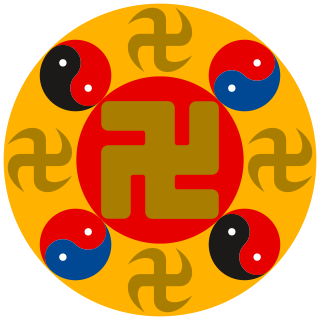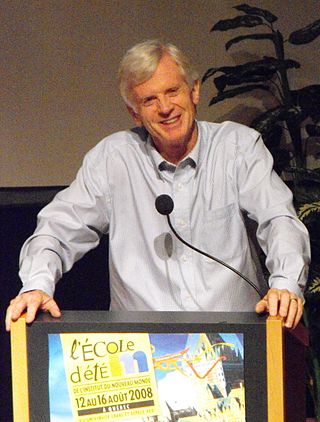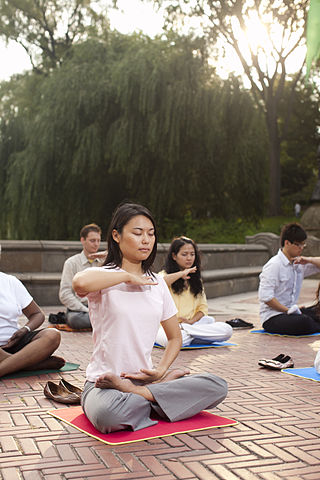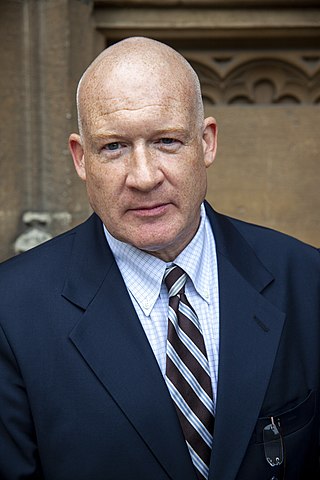
Falun Gong or Falun Dafa is a new religious movement. Falun Gong was founded by its leader Li Hongzhi in China in the early 1990s. Falun Gong has its global headquarters in Dragon Springs, a 173-hectare (427-acre) compound in Deerpark, New York, United States, near the residence of Li Hongzhi.

David William Kilgour was a Canadian human rights activist, author, lawyer, and politician. He was also a Senior Fellow to the Raoul Wallenberg Centre for Human Rights.

The 610 Office was a security agency in the People's Republic of China. Named for the date of its creation on June 10, 1999, it was established for the purpose of coordinating and implementing the persecution of Falun Gong. The 610 Office was the implementation arm of the Central Leading Group on Dealing with the Falun Gong (CLGDF), also known as the Central Leading Group on Dealing with Heretical Religions, a leading small group of the Chinese Communist Party (CCP). Because it was a CCP-led office with no formal legal mandate, it is sometimes described as an extralegal organisation.
Freedom of religion in China may be referring to the following entities separated by the Taiwan Strait:
Murder for body parts also known as medicine murder refers to the killing of a human being in order to excise body parts to use as medicine or purposes in witchcraft. Medicine murder is viewed as the obtaining of an item or items from a corpse to be used in traditional medicine. The practice occurs primarily in sub-equatorial Africa.

The Sujiatun Thrombosis Hospital, officially known as the Liaoning Provincial Thrombosis Treatment Center of Integrated Chinese and Western Medicine, is a public hospital opened in December 1988 in the Sujiatun district of Shenyang, in northeast China. The hospital is a joint venture with a company associated with the Malaysian government, and has gained several awards for research.

Falun Gong, also called Falun Dafa, is a spiritual practice and system of beliefs that combines the practice of meditation with the moral philosophy articulated by its leader and founder, Li Hongzhi. It emerged on the public radar in the Spring of 1992 in the northeastern Chinese city of Changchun, and was classified as a system of qigong identifying with the Buddhist tradition. Li claimed to have both supernatural powers like the ability to prevent illness, as well having eternal youth and promised that others can attain supernatural powers and eternal youth by following his teachings. Falun Gong initially enjoyed official sanction and support from Chinese government agencies, and the practice grew quickly on account of the simplicity of its exercise movements, impact on health, the absence of fees or formal membership, and moral and philosophical teachings.
Falun Gong, a new religious movement that combines meditation with the moral philosophy articulated by founder Li Hongzhi, first began spreading widely in China in 1992. Li's first lectures outside mainland China took place in Paris in 1995. At the invitation of the Chinese ambassador to France, he lectured on his teachings and practice methods to the embassy staff and others. From that time on, Li gave lectures in other major cities in Europe, Asia, Oceania, and North America. He has resided permanently in the United States since 1998. Falun Gong is now practiced in some 70 countries worldwide, and the teachings have been translated to over 40 languages. The international Falun Gong community is estimated to number in the hundreds of thousands, though participation estimates are imprecise on account of a lack of formal membership.
Dr. Wang Wenyi is a pathologist who once worked as a journalist for The Epoch Times. She is known for having confronted Jiang Zemin, General Secretary of the Chinese Communist Party in 2001, and protested for the forced organ harvesting in China with General Secretary Hu Jintao on 20 April 2006 in White House. According to press reports, she was protesting against Communist China's human rights abuse especially the organ harvesting from living Falun Gong practitioners.
The 2001 Tiananmen Square self-immolation incident took place in Tiananmen Square in central Beijing, on the eve of Chinese New Year on 23 January 2001. There is controversy over the incident; Chinese government sources say that five members of Falun Gong, a new religious movement that is banned in mainland China, set themselves on fire in the square. Falun Gong sources disputed the accuracy of these portrayals, and claimed that their teachings explicitly forbid violence or suicide. Some journalists have claimed that the self-immolations were staged.

Organ transplantation in China has taken place since the 1960s, and is one of the largest organ transplant programmes in the world, peaking at over 13,000 liver and kidney transplants a year in 2004.

David Matas is the senior legal counsel of B'nai Brith Canada who currently resides in Winnipeg, Manitoba. He has maintained a private practice in refugee, immigration, and human rights law since 1979, and has published various books and manuscripts.

The Kilgour–Matas report is a 2006/2007 investigative report into allegations of live organ harvesting in China conducted by Canadian MP David Kilgour and human rights lawyer David Matas. The report was requested by the Coalition to Investigate the Persecution of Falun Gong (CIPFG) after allegations emerged that Falun Gong practitioners were secretly having their organs removed against their will at Sujiatun Thrombosis Hospital. The report, based on circumstantial evidence, concluded that "there has been, and continues today to be, large-scale organ seizures from unwilling Falun Gong practitioners." China has consistently denied the allegations.

The persecution of Falun Gong is the campaign initiated in 1999 by the Chinese Communist Party (CCP) to eliminate the spiritual practice of Falun Gong in China, maintaining a doctrine of state atheism. It is characterized by a multifaceted propaganda campaign, a program of enforced ideological conversion and re-education and reportedly a variety of extralegal coercive measures such as arbitrary arrests, forced labor and physical torture, sometimes resulting in death.
Organ theft is the act of taking a person's organs for transplantation or sale on the black market, without their explicit consent through means of being an organ donor or other forms of consent. Most cases of organ theft involve coercion, occurrences in wartime, or thefts within hospital settings. Organ theft is a commonly used trope in speculative fiction.

Free China: The Courage to Believe is a 2012 documentary film about the persecution of Falun Gong, starring Jennifer Zeng and Dr. Charles Lee.

Ethan Gutmann is an American writer, researcher, author, and a senior research fellow in China Studies at the Victims of Communism Memorial Foundation whose work has investigated surveillance and organ harvesting in China.

Human Harvest is a 2014 documentary film, directed by Vancouver filmmaker Leon Lee, which follows the investigative work by Canadian Nobel Peace Prize nominees David Matas and David Kilgour on whether and how state-run hospitals in China harvested and sold organs by killing tens of thousands of prisoners of conscience, mainly Falun Gong practitioners.
Allegations of forced organ harvesting from Falun Gong practitioners and other political prisoners in China have raised concern within the international community. According to a report by former lawmaker David Kilgour, human rights lawyer David Matas, and journalist Ethan Gutmann of the US government-affiliated Victims of Communism Memorial Foundation, political prisoners, mainly Falun Gong practitioners, are being executed "on-demand" in order to provide organs for transplant to recipients. Reports have said that organ harvesting has been used to advance the Chinese Communist Party's persecution of Falun Gong and because of the financial incentives available to the institutions and individuals involved in the trade. A report by The Washington Post has disputed some of the allegations, saying that China does not import sufficient quantities of immunosuppressant drugs, used by transplant recipients, to carry out such quantities of organ harvesting. However, the Victims of Communism Memorial Foundation alleged that the Post's article made an “elementary statistical error” and omitted unofficial pharmacy data in Chinese hospitals.

Antireligious campaigns in China are a series of policies and practices taken as part of the Chinese Communist Party's official promotion of state atheism, coupled with its persecution of people with spiritual or religious beliefs, in the People's Republic of China. Antireligious campaigns were launched in 1949, after the Chinese Communist Revolution, and they continue to be waged against Buddhists, Christians, Muslims, and members of other religious communities in China.













